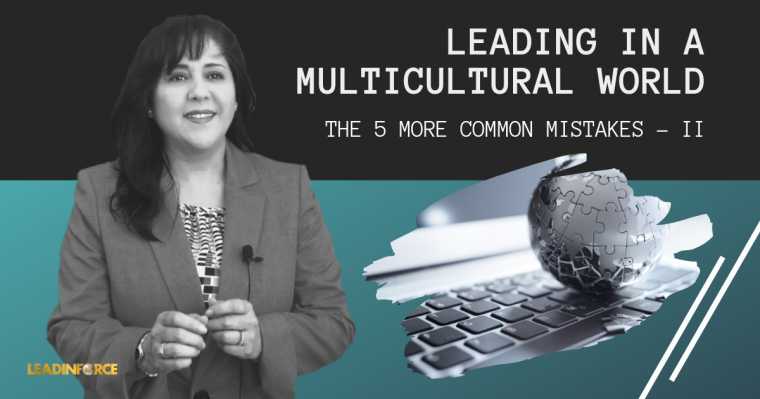In the multicultural and globalized world in which we live, understanding others is the difference between having –or not having better clients, teams, and organizations. The tendency of the global leader towards diversity is one of the advantages that allow him to easily understand others.

Let’s see why to Understand other people in a globalized world can mean the success or failure of your career or the project you want to achieve and 4 easy steps that can help you to successfully understand others.
Understanding goes much further than just listening to other people’s ideas. In multicultural environments, it is a set of elements, which implies having a basic cultural knowledge and developing the ability to understand others within their own context.
For example, for many years facial expressions had been seen as a response, mostly biologically conditioned. Today we know that they are also influenced by the environment in which we live and develop; more grounded in the culture that we create and that surrounds us.
Studies published in the journal of the Association for the Sciences of Psychology clearly demonstrate how culture influences communication. Akihiro Tanaka of the Waseda Advanced Studies Institute in Japan stated: “I think Japanese people tend to hide their negative emotions by smiling, but it’s more difficult to hide negative emotions in the voice.” Therefore, Japanese people may be used to listening to emotional cues. This could lead to confusion when a Dutch person, who is used to the voice and the face matching, talks with a Japanese person; they may see a smiling face and think everything is fine while failing to notice the upset tone in the voice.
Are there advantages in developing our ability to understand others in a globalized world?
The art of understanding other people in multicultural environments and in a globalized world can mean the success or failure of your career or the project you want to achieve.
I could mention countless benefits of what it means to understand others in the globalized world in which we live today; however, the most significant is the opportunity to connect with others at a level where you can influence them. This advantage on a personal and professional level becomes the basis of successful relationships, teams, and organizations.
In what way can you develop the ability to understand others in a globalized world?
The first thing to keep in mind is that if understanding others, in multicultural environments, is not your best skill, do not worry, this skill can be learned and developed.
Then it is vital to expand your cultural awareness. Know your own culture well and begin to understand the current culture of those who want to establish relationships.
Your next step is to develop the ability to communicate, connect, and relate well with others. LEADINFORCE can help you; click here for more details.
In general, when looking into understanding others:
- Avoid distractions when other people talk to you or when you are doing teamwork. This general norm of respect towards others can have different implications according to the culture or group in which you find yourself.
- Have empathy with others, accepting that there are differences and that emotions may exist behind what others express. Although empathy can be perceived in professional environments as a distraction, in the long term, it will allow you to connect at a deeper level with others.
- Create a successful environment in each conversation. Being present (focused), listening with respect and giving feedback, are basic elements of communication and effective tools when connecting with others. For example, in the American culture looking into the eyes is a sign of trust and credibility. While in the Chinese culture, maintaining eye contact can be seen as challenging.
- Keep the focus on others and not on yourself. Listen carefully and pay close attention to others with the intention of knowing more about them and understanding them; this “may be your first big step” on the road to success.
In the globalized world in which we live, being a leader is not enough anymore; you need to be a global leader. You can start achieving better results today! Let’s talk about how LEADINFORCE can help you develop the skills that will allow you to become a global leader and be successful in the face of cultural differences
Question: How can you benefit from understanding others in a globalized world?
